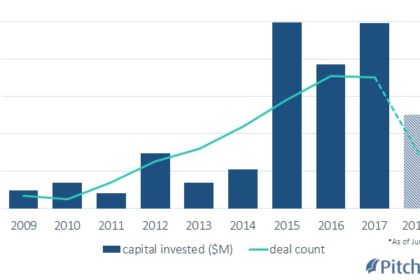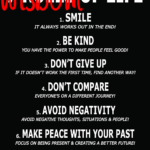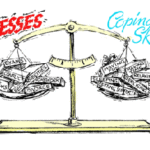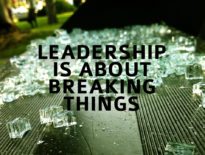
Inspired by changes in professional sports, where a growing number of high-profile athletes have gone public with their mental health and psychological struggles, Felicis founder Aydin Senkut and partner Dasha Maggio, announced in September that Felicis Ventures will commit 1%, on top of every check the firm writes, in non-dilutive capital earmarked for “founder development” in coaching and mental health.
We have a crisis in our economy and it’s one not just facing the incredibly high pressure (and high fail) role of startup entrepreneurs. My work through Impact Hub’s Workforce Development Accelerator, on behalf of what MediaTech Ventures is building in Collective, found that as much of 50% (HALF) of the entire U.S. workforce will work for themselves in some capacity in the coming years.
Not only is U.S. healthcare a mess, mental healthcare remains largely relegated to “out-of-pocket” costs, while remaining rather stigmatized by society. It’s socially acceptable to “be taking Xanax” or even referring to “my therapist” but “being depressed” it still largely considered an emotional state that one can get over with a good cry.
“Startup founders are in high-pressure environments, and we ask them to build these disruptive companies that will change the world, and yet we are not really providing support on this front,” says Senkut. “We’re putting all of it in a box for founders to deal with alone. And that didn’t make sense to us.”
My good friend and an incredible entrepreneur, Jeddy Yuan, recently asked, “Where do founders go to vent/melt down confidentially?”
He’s the founder of InCommon, working to address addiction and other mental health issues. And he’s not alone. Evidence that society has a “problem” not being solved by our healthcare industry, startups in the space have boomed, with entrepreneurs doing what they do… finding a gap in the market and addressing it. Sadly, one would hope we wouldn’t need such solutions to our problems – one would hope that mental health was already a priority in a world; depressingly, that’s rarely the case.
I’ve tackled a loosely related question of balance (work-life balance) before and considered a notion that the mistake we make is thinking of our lives as either work OR life: Funds, Family, Friends, Fitness, and Faith. Those are the balls we juggle as best we can and for most, if you’re lucky, you can juggle three or maybe four. I find I can only juggle two, and that comes at a cost.
Jeddy’s question prompted a bit of soul-searching about how and where I turn to adjust myself to that toll I take on myself.
- Committed partner. My wife. Someone in whom you can trust, for better or for worse.
- Co-founder. That person is NOT a business partner. That person is NOT an employee. Your relationship is NOT temporary as you work on *this* startup. If that’s really who you have in someone you’re starting a company with, they can (deserve to) know everything.
- Family. Separate from work. Not balanced work/life, my family is cut off from work. Weekends are mine; even if the company is burning down… Mondays are for putting out fires

- Faith… In something, not necessarily religious. That, by the way, is my point about faith in those 5 things we juggle; you don’t have to have faith in a higher power but we all do have faith in something. When all else fails, keep in mind you have something: health, diet, love, Allah, country, a hobby, someone who needs you … In whatever you have faith, you can turn.
- Writing. I learned a long time ago that I write for me. If you don’t like my opinion or you think I need an editor, I don’t care. If you get something from my opinions, experience, and what I share, all the better, but I don’t write for you, I write for me.
- Friends. I struggle with this one. Drawing a line between work friends and personal friends is tough when your life is defined so much by your work. The occasional poker game and friendly networking event where business cards aren’t allowed seem best for me.
- Conversational therapist. Mental Health is critical and U.S. healthcare doesn’t give a damn about it… Talk to someone. There’s no reason not to (and if you have a reason, a common reason being a stigma about mental health, I’ll stand with you and tell people to f’ off). I’m of the mind that we’re all the same, imperfect; and mental health is the first, right step to a Universal Care system. We should all have someone to talk with in confidence. The notion that we’re infallible is destroying our culture.
Last year, according to PitchBook, nearly $500 million spread across 70 deals went to support mental health innovation. We have a problem; leave it to entrepreneurs to note when the system is failing and that working together, recognizing the problem, we can do something about it.






Now it feels like an official thread! Especially agree with 5-7.
Great list Paul I would add 8. a group of like-minded CEOs who live right where you live. 9. some mentors – the ones who have built companies themselves – can also add great perspective.
Kim Gorsuch-Bradbury – got to get the list to 10! 🙂
10. Coach – highly underrated and underutilized resource. Granted it is a paid for resource but the right coach is worth their weight in gold. You could put them under ‘Conversational Therapist’. If you do tho, we need a new point for 10.
Paul: You are a value creation machine! Read it quickly it but didn’t catch anything.
I particularly love your description of a co-founder. People seem to think of it as a job role, but I like YOUR distinctions. Repeating it here: Co-founder. That person is NOT a business partner. That person is NOT an employee. Your relationship is NOT temporary as you work on *this* startup. If that’s really who you have in someone you’re starting a company with, they can (deserve to) know everything.
^ Good word. One of the many reasons Paul O’Brien is a powerhouse in the Central Texas Tech/Business community.
This is great. I’m so glad you are addressing this topic. I only hope that this conversation continues to gain traction.
Jeddy Yuan it is great to see you mentioned in this article! I feel concerned at times that the start-up founders I talk with may be headed for burnout. We all need a safe person in our lives who can simply “be with” us when the discouragement, doubts, anger, or sad moments happen. We can’t always be playing our A game and to pretend we are is detrimental.
I was just thinking how to balance my short-circuited brain when your article comes along. Thanks for this. Have picked up few things..
I hope we see the growth trend continue so the funding & resources can expand to reach all early stage startup & small business employees. While I know I always brought a lot of it on myself, the pressure placed on so many of these team members (often as fall-out from founders’ emotional distress) is alarming.
And I’ll readily admit (to the surprise of no one) that no amount of stress at the IC, Manager or Executive level could have prepared me for the emotional rollercoaster of entrepreneurship, and I invest a LOT of my time & energy into personal/professional development.
I think its like any other undertaking: it has to have the heart-felt and sincere love at its core, or you will grow to hate it.
Is there a way to increase positive mental health while initially building?
Pragmatic realism. Appreciating that…
1. Entrepreneurs don’t get paid. It’s not a job.
2. Overwhelmingly most startups fail.
Those are the norms. Mental health challenges are often a result of a cognitive dissonance (holding contradictory beliefs).
https://seobrien.com/the-mental-health-burden-entrepreneurship
And so the challenge of being a founder and staying healthy, mentally, is embracing that you will fail and that reward is not compensation.
Do what you love. Find YOUR mission. It needs to be your hobby, your life, and your passion. Failing is part of the journey, not an outcome
Are you familiar w Take This?
Nope? Do tell
https://www.takethis.org/
Seven excellent points. I am one who writes for myself as well.